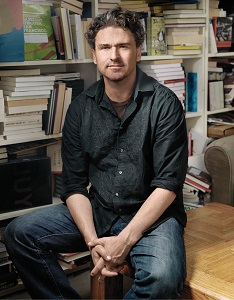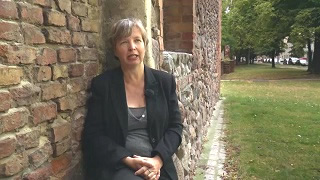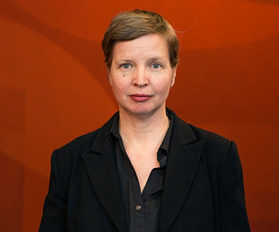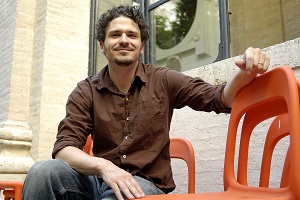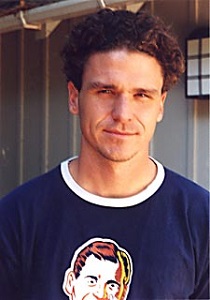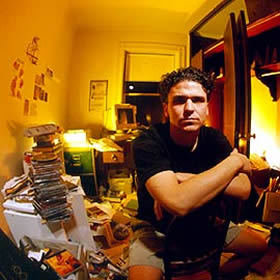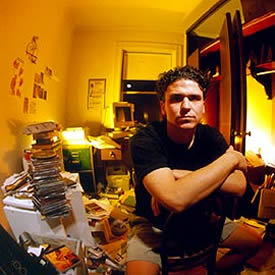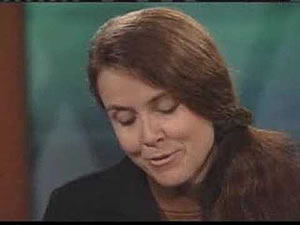De Amerikaanse schrijver Dave Eggers werd geboren op 12 maart 1970 in Chicago. Zie ook alle tags voor Dave Eggers op dit blog.
Uit: The Monk of Mokha
“He ducks into Blue Bottle to say hello to friends working inside, and to bring me a cup of coffee from Ethiopia. He insists I wait till it cools to drink it. Coffee should not be enjoyed too hot, he says; it masks the flavor, and taste buds retreat from the heat. When we’re finally settled and the coffee has cooled, he begins to tell his story of entrapment and liberation in Yemen, and of how he grew up in the Tenderloin district of San Francisco—in many ways the city’s most troubled neighborhood—how, while working as a doorman at a high-end apartment building downtown, he found his calling in coffee.
Mokhtar speaks quickly. He is very funny and deeply sincere, and illustrates his stories with photos he’s taken on his smartphone. Sometimes he plays the music he listened to during a particular episode of his story. Sometimes he sighs. Sometimes he wonders at his existence, his good fortune, being a poor kid from the Tenderloin who now has found some significant success as a coffee importer. Sometimes he laughs, amazed that he is not dead, given he lived through a Saudi bombing of Sana’a, and was held hostage by two different factions in Yemen after the country fell to civil war. But primarily he wants to talk about coffee. To show me pictures of coffee plants and coffee farmers. To talk about the history of coffee, the overlapping tales of adventure and derring-do that brought coffee to its current status as fuel for much of the world’s productivity, and a seventy-billion-dollar global commodity. The only time he slows down is when he describes the worry he caused his friends and family when he was trapped in Yemen. His large eyes well up and he pauses, staring at the photos on his phone for a moment before he can compose himself and continue.
Now, as I finish this book, it’s been three years since our meeting that day in Oakland. Before embarking on this project, I was a casual coffee drinker and a great skeptic of specialty coffee. I thought it was too expensive, and that anyone who cared so much about how coffee was brewed, or where it came from, or waited in line for certain coffees made certain ways, was pretentious and a fool.
But visiting coffee farms and farmers around the world, from Costa Rica to Ethiopia, has educated me. Mokhtar educated me. We visited his family in California’s Central Valley, and we picked coffee cherries in Santa Barbara—at North America’s only coffee farm. We chewed qat in Harar, and in the hills above the city we walked amid some of the oldest coffee plants on earth. In retracing his steps in Djibouti, we visited a dusty and hopeless refugee camp near the coastal outpost of Obock, and I watched as Mokhtar fought to recover the passport of a young Yemeni dental student who had fled the civil war and had nothing—not even his identity. In the most remote hills of Yemen, Mokhtar and I drank sugary tea with botanists and sheiks, and heard the laments of those who had no stake in the civil war and only wanted peace.”
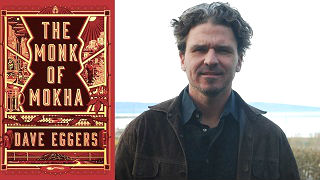
Dave Eggers (Chicago, 12 maart 1970)
De Zuid-Afrikaanse schrijfster, journalste en columniste Marianne Thamm werd geboren op 12 maart 1961 in Taplow, Engeland. Zie ook alle tags voor Marianne Thamm op dit blog.
Uit: De ondraaglijke blankheid van het bestaan (Vertaald door Ronnie Boley)
“Misschien was dat de reden dat hij zijn deelneming vooral met zijn gezichtsuitdrukking en lichaamstaal moest overbrengen.
Ergens in het stille gebouw lag mijn moeders lichaam koud te worden in een gemeenschappelijke mortuariumkoeling, nog altijd in de nachtpon van de avond ervoor, toen ze aan een zware hartaanval was bezweken. Ze was een maand voor haar tweeënzeventigste verjaardag gestorven.
Ik had een plastic zak bij me met een bruin, gedessineerd broekpak van (zeer brandgevaarlijk) polyester, dat mijn moeder in de jaren zeventig had gekocht en jarenlang had gekoesterd. Het was een van haar favoriete kledingstukken. Het broekpak, een paar sandalen, schoon ondergoed (dat zou ze gewild hebben). Polyester was een wonderbaarlijke stof uit de jaren zeventig, strijkvrij en binnen een paar minuten droog – ideaal voor de drukbezette moeder en huisvrouw. Een van die verbazingwekkende twintigste eeuwse spullen waaraan elke thuisblijvende moeder verknocht raakte, net als smaakversterkers en voedingskleurstoffen.
Meneer Tolmie rommelde in wat papieren en stak van wal.
‘Om te beginnen hebben we vier overlijdensakten nodig en die komen op driehonderd rand per stuk,’ verklaarde hij met zijn nu onmiskenbaar monotone stem, de ogen neergeslagen, de pen zwevend boven een formulier.
‘Fier? Waarom fier? We hebben er al een fan de arts die naar het tehuis is gekomen,’ protesteerde mijn vader met zijn zware Duitse accent. Dat accent was nooit afgezwakt, hoewel hij al meer dan vijftig jaar in ZuidAfrika woonde.
‘Tja, de tweede arts moet bevestigen wat de eerste arts heeft opgeschreven en de derde arts bevestigt dat weer enzovoort,’ legde meneer Tolmie langzaam uit, met handgebaren die ontegenzeggelijk bedoeld waren om zijn woorden te verduidelijken en misschien een overblijfsel waren van gebarentaal.
Mijn vader wierp me een geërgerde blik toe. Ik wist wat die betekende. Allemaal afzetterij, dacht hij. En hij was vastbesloten om zo weinig mogelijk te betalen. Dat is immers de aanpak van niet kerkelijke, cultureel vervreemde blanken. Doden zo snel mogelijk laten begraven of bij voorkeur cremeren, in de goedkoopste kist die er maar te krijgen is. Grenen of, beter nog, karton. Wacht, is een linnen wikkeldoek ook een optie? Wat kost dat? Zonde om geld te verspillen aan iets wat er niet meer toe doet.Geld uitgeven aan een uitvaart was in mijn vaders ogen even erg als een nieuwe auto kopen.”
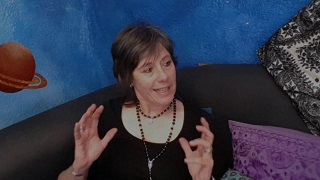
Marianne Thamm (Taplow, 12 maart 1961)
De Duitse schrijfster en filmregisseur Jenny Erpenbeck werd geboren op 12 maart 1967 in Oost-Berlijn. Zie ook alle tags voor Jenny Erpenbeck op dit blog.
Uit: Kein Roman
„Nichts Schöneres für ein Kind, als da aufzuwachsen, wo die Welt zu Ende ist. Da gibt es nicht viel Verkehr, der Asphalt ist für die Roll-schuhe da, und die Eltern müssen sich keine Gedanken um herum-schweifende Bösewichter machen. Was will ein Bösewicht in einer Sackgasse.
Die Wohnung, von der aus ich zum ersten Mal auf eigenen Füßen auf die Straße hinuntergehe, liegt im zweiten Geschoß eines präch-tigen alten Mietshauses mit prächtig abblätterndem Putz, verglasten Erkern, einer riesigen doppelflügligen Eingangstür und einer hölzer-nen Treppe, das Ende des Handlaufs mündend in ein blankgegriffe-nes Ungeheuer. Florastral3e 2A, Horastraße 2A, Florastraße 2A. Die ersten Worte nach Mama und Papa sind dieser Straßenname und diese Hausnummer. Damit ich, falls ich verlorengehe, immer sagen kann, wo ich bingehöre. Flosstraße 2A. Hockend im Treppenhaus dieses Hauses lerne ich, wie man eine Schleife zubindet. Gleich um die Ecke, in der Wollankstraßc, befindet sich der Bäckerladen, in dem ich, vier- oder fünfjährig, zum ersten Mal in meinem Leben al-lein einkaufen darf, von meinen Eltern hinuntergeschickt mit Beu-tel und abgezählten Talern für die Brötchen zum Frühstück. Der Bäckerladen hat geschnitzte Regale und eine Kasse, bei der die Ver-käuferin, bevor sie das Geld hineingibt, an einer Kurbel dreht. Wenn die Schublade aufgeht, klingelt es. Dic Wollankstraße endet ein paar hundert Meter weiter sehr plötzlich an einer Mauer. Dort ist die Endhaltestelle der Buslinie 50. Meine Eltern müssen sich keine Ge-danken um herumschweifende Bösewichter machen, was will ein Bösewicht in einer Sackgasse. Damals werde ich allein auf den Hof zum Buddeln geschickt, eine große Tanne wirft Schatten auf mei-nen Buddelkasten, und wenn das Essen fertig ist, ruft meine Mutter aus dem Fenster. Im ersten Stock unseres Hauses ist eine Tanzschule, von dort hört man bis auf den Hof hinunter ein Klavier klimpern und die Anweisung der Lehrerin für die Schritte.
Hinter der Mauer, an der die Wollankstraße damals für mich zu Ende ist, fährt die S-Bahn. Sie fährt nach links und nach rechts aber beide Richtungen kommen für uns nicht in Frage. Eine S-Bahn-Station weiter links, aber auch auf unserer Seite der Mauer, wohnen meine Großmutter mit ihrem Mann und meine Urgroßmutter zu-sammen in einer Zweizimmerwohnung im dritten Hinterhof eines Berliner Hauses. Eigentlich ist das Haus ein Eckhaus.“
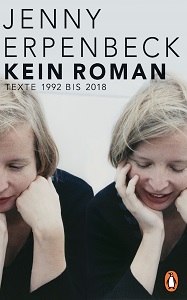
Jenny Erpenbeck (Berlijn, 12 maart 1967)
Cover
De Amerikaanse schrijver Jack Kerouac werd geboren op 12 maart 1922 in Lowell, in de Amerikaanse staat Massachusetts. Zie ook alle tags voor Jack Karouac op dit blog.
Uit: On The Road
“I went to the cold-water flat with the boys, and Dean came to the door in his shorts. Marylou was jumping off the couch; Dean had dispatched the occupant of the apartment to the kitchen, probably to make coffee, while he proceeded with his love problems, for to him sex was the one and only holy and important thing in life, although he had to sweat and curse to make a living and so on. You saw that in the way he stood bobbing his head, always looking down, nodding, like a young boxer to instructions, to make you think he was listening to every word, throwing in a thousand “Yeses” and “That’s rights.” My first impression of Dean was of a young Gene Autry-trim, thin-hipped, blue-eyed, with a real Oklahoma accent-a side burned hero of the snowy West. In fact he’d just been working on a ranch, Ed Wall’s in Colorado, before marrying Marylou and coming East. Marylou was a pretty blonde with immense ringlets of hair like a sea of golden tresses; she sat there on the edge of the couch with her hands hanging in her lap and her smoky blue country eyes fixed in a wide stare because she was in an evil gray New York pad that she’d heard about back West, and waiting like a longbodied emaciated Modigliani surrealist woman in a serious room. But, outside of being a sweet little girl, she was awfully dumb and capable of doing horrible things. That night we all drank beer and pulled wrists and talked till dawn, and in the morning, while we sat around dumbly smoking butts from ashtrays in the gray light of a gloomy day, Dean got up nervously, paced around, thinking, and decided the thing to do was to have Marylou make breakfast and sweep the floor. “In other words we’ve got to get on the ball, darling, what I’m saying, otherwise it’ll be fluctuating and lack of true knowledge or crystallization of our plans.” Then I went away.
During the following week he confided in Chad King that he absolutely had to learn how to write from him; Chad said I was a writer and he should come to me for advice. Meanwhile Dean had gotten a job in a parking lot, had a fight with Marylou in their Hoboken apartment—God knows why they went there—and she was so mad and so down deep vindictive that she reported to the police some false trumped-up hysterical crazy charge, and Dean had to lam from Hoboken. So he had no place to live. He came right out to Paterson, New Jersey, where I was living with my aunt, and one night while I was studying there was a knock on the door, and there was Dean, bowing, shuffling obsequiously in the dark of the hall, and saying, “Hel-lo, you remember me—Dean Moriarty? I’ve come to ask you to show me how to write.”
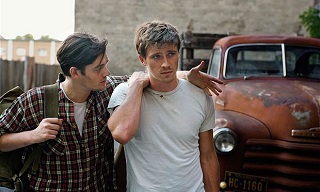
Jack Kerouac (12 maart 1922 – 21 oktober 1969)
Scene uit de gelijknamige film met Sam Riley als Sal Paradise en Garrett Hedlund als Dean Moriarty, 2012
De Duitse schrijfster Henrike Heiland werd geboren op 12 maart 1975 in Solms. Zie ook alle tags voor Henrike Heiland op dit blog.
Uit: Zum Töten nah
„Die frische Brise, die landwärts von der Ostsee her wehte, schaffte es nicht, den Gestank des verbrannten Leichnams erträglicher zu machen.
»Durch den Mund atmen!«, rief ihnen ein Spurensicherer zu. Erik Kemper nickte nur.
Es war drei Uhr an einem Samstagmorgen im September, und der Fundort im Überseehafen Rostocks war mit starken Scheinwerfern ausgeleuchtet. Die Männer von der Kriminaltechnischen Untersuchung fotografierten noch und suchten die Gegend ab. Erik sah sich langsam um, vermied es aber, direkt auf das Opfer zu sehen.
»Was legt hier nachher ab?«, fragte er Micha Anders, der sich gerade mit einem der Hafenpolizisten unterhalten hatte.
»Nur Frachter, wir können gut absperren. Im Moment liegen auch nur diese beiden Schiffe hier, und die waren definitiv die ganze Zeit dicht. Da konnte niemand rauf, um sich zu verstecken. Ich denke, die können raus.«
In Eriks Kopf hämmerte es. Er hatte fast nicht geschlafen, und als er sich endlich zwang, zu dem Opfer hinüberzusehen, schaffte er es kaum, seinen Blick scharf zu stellen.
Die Leiche und der Boden darum herum in einem Radius von ungefähr zwei Metern waren mit weißem Feuerlöschpulver bedeckt. Unmöglich zu sagen, ob es sich einmal um einen Mann oder eine Frau gehandelt hatte. Wie es aussah, hatte das Feuer Kleidung, Haut, Haare und Fleisch fast vollständig aufgefressen. Das Opfer lag auf dem Rücken, die Arme, die Hände zusammengekrampft, ob vom Feuer oder vom Todeskampf, war unklar. Die verkohlten menschlichen Überreste waren mit dem asphaltierten Boden des Parkplatzes, der an einer der Anlegestellen des großen Überseehafens lag, fast verschmolzen. Im gleißenden Scheinwerferlicht sah Erik noch Dampf aufsteigen.
»Wo ist der Typ mit dem Feuerlöscher?«, fragte er dann und sah sic
h suchend um.
Micha deutete auf einen kahlköpfigen, leicht übergewichtigen Mann Ende vierzig in Flanellhemd und Jeans, der mithilfe eines Sanitäters versuchte, das Feuerlöschpulver von Körper und Kleidung zu entfernen.
»Hat die Windrichtung in der Aufregung nicht beachtet«, erklärte Micha. »Dieter Lindpointner heißt er. Österreicher.« Er sagte es in einem Tonfall, als würde die Herkunft des Mannes alles erklären.“
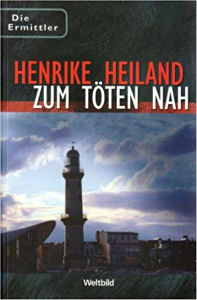
Henrike Heiland (Solms, 12 maart 1975)
Cover
De Amerikaanse dichteres en schrijfster Naomi Shihab Nye werd geboren op 12 maart 1952 in St. Louis, Missouri. Zie ook alle tags voor Naomi Shihab Nye op dit blog.
The Traveling Onion
“It is believed that the onion originally came from India. In Egypt it was an
object of worship —why I haven’t been able to find out. From Egypt the onion
entered Greece and on to Italy, thence into all of Europe.” — Better Living Cookbook
When I think how far the onion has traveled
just to enter my stew today, I could kneel and praise
all small forgotten miracles,
crackly paper peeling on the drainboard,
pearly layers in smooth agreement,
the way the knife enters onion
and onion falls apart on the chopping block,
a history revealed.
And I would never scold the onion
for causing tears.
It is right that tears fall
for something small and forgotten.
How at meal, we sit to eat,
commenting on texture of meat or herbal aroma
but never on the translucence of onion,
now limp, now divided,
or its traditionally honorable career:
For the sake of others,
disappear.
Business
“Syrian refugees go about their business in a refugee camp in Mafraq, Jordan…”
Ropes on poles, jeans & shirts flapping in wind.
He sits on a giant bag of rice, head in hands.
Too much or too little, rips & bursts & furrows.
Something seared in a pan.
If you knew a mother, any mother, you would care
for mothers, yes? No.
What it is to be lonesome for stacked papers
on a desk, under glass globe,
brass vase with standing pencils,
new orders.
How quickly urgencies of doing disappear.
And where is the child from the next apartment,
whose crying kept him awake
these last terrible months?
Where do you file this unknowing?
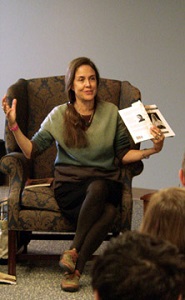
Naomi Shihab Nye (St. Louis,12 maart 1952)
De Amerikaanse schrijver, journalist en columnist Carl Hiaasen werd geboren op 12 maart 1953 in Plantation, Florida. Zie ook alle tags voor Carl Hiaasen op dit blog.
Uit: Squirm
“This one kid, he got kicked out of school.
That’s not easy to do–you need to break some actual laws. We heard lots of rumors, but nobody gave us the straight story.
The kid’s name was Jammer, and I got his locker.
Who knows what he kept in there, but he must’ve given out the combination to half the school. Kids were always messing with my stuff when I wasn’t around.
So I put a snake inside the locker. Problem solved.
It was an Eastern diamondback, a serious reptile. Eight buttons on the rattle, so it made some big noise when people opened the locker door. The freak-out factor was high.
Don’t worry–the rattlesnake couldn’t bite. I taped its mouth shut. That’s a tricky move, not for rookies. You need steady hands and zero common sense. I wouldn’t try it again.
The point is I didn’t want that rattler to hurt anyone. I just wanted kids to stay out of my locker.
Which they now do.
I set the diamondback free a few miles down Grapefruit Road, on the same log where I found him. It’s important to exit the scene fast, because an adult rattlesnake can strike up to one-half of its body length. Most people don’t know that, and why would they? It’s not a necessary piece of information, if you live a halfway normal life.”
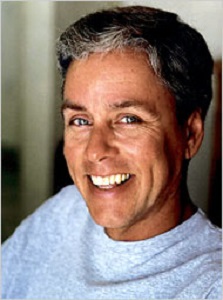
Carl Hiaasen (Plantation, 12 maart 1953)
De Amerikaanse schrijver Edward Albee werd geboren op 12 maart 1928 in Washington DC. Zie ook alle tags voor Edward Albee op dit blog.
Uit: Ik bedenk personages, geen plot (Interview door Kester Freriks in NRC, 2007)
“Uw achternaam is Albee. Heeft u overwogen uw moeders naam aan te nemen? Dan zou u als Edward Harvey door het leven kunnen gaan.
.„Dit heeft nog nooit iemand me zo direct gevraagd.”Albee zwijgt even. „Maar u mag die vraag stellen, wantmijn biografie behoorttot het open domein. Mijn pleegouders heetten Albee en ze noemden mij eigenlijk Edward Albee III, want ik werd vernoemd naar grootvader Albee I die aan het hoofd stond van een keten van vaudeville-theaters. Na de dood van mijn tweede moeder in 1989 kreeg ik de adoptiepapieren onder ogen. Pas sinds dat ogenblik weet ik dat zij Harvey heette. De naam Edward had ik toen al; die is door haar gekozen. Ik heb contact gezocht met het adoptiebureau, maar dat geeft niets prijs. Ik kon mijn naam niet meer veranderen. „Ik moet toegeven dat ik mijn leven lang heb gehoopt dat een vrouw naar me toe zou komen met de woorden:‘Ik ben je echte moeder. ’Dat is nooit gebeurd. Vroeger kon ik wel huilen als ik hoorde van kinderen en hun werkelijke ouders, nu niet meer. En nog altijd is er het raadsel of mijn moeder wel Harvey heette. Zij kan die naam best hebben verzonnen.
(…)
Ze stelden geen vragen over hun rollen?
„Nee,en dat is beter ook. Speel wat er staat, maak het niet te symbolisch en zeker niet te psychologisch. Er staan woorden in de tekst die iedereen kan begrijpen. Er wordt veel te veel onzin beweerd over mijn stukken. Ik werd eerst een‘absurdist’ genoemd omdat The Zoo Story een keer in een avond werd gespeeld met Krapp’s laatste band van Samuel Beckett. Ik vond dat aanvankelijk een belediging. Mijn toneelwerk gaat over reële mensen met bestaande angsten.Daar is helemaal niets absurdistisch aan. Wie dat zegt, haalt de angel van de werkelijkheid uit mijn theater.
In Washington speelt nu een Broadway-versie van ‘Virginia Woolf’, met Kathleen Turner en Bill Irwin. U bent ooit in het anarchistisch theatercircuit van ‘off- off-Broadway’begonnen en pleitte voor kleine theaters die niet door het kapitaal worden geregeerd. En nu Broadway.
„De grootste bedreiging voor het theater is de macht van het geld. Musicals trekken een groot publiek, maar de kwaliteit is vaak hopeloos. Kassucces en diepgang gaan niet altijd samen. Ik vind dat dilemma onverdraaglijk. Turner en Irwin zijn beiden voor hun rol bekroond. Ze zijn kostbaar. Als schrijver wil je de beste acteurs voor je stuk. In het Kennedy Center is plaats voor bijna duizend mensen. Het is telkens uitverkocht. Maar ik vind de zaal te groot. Who’s Afraid ofVirginia Woolf? is een intiem toneelstuk voor niet meer dan twee- of driehonderd toeschouwers. Elke toeschouwer moet kunnen denken: dit stuk wordt alleen voor mij gespeeld, ik ben getuige van een gepantserd gevecht over liefde en dood tussen vier mensen, dat ik eigenlijk niet mag zien. Zo verging het mij tijdens het schrijven: wat ik zag en hoorde, wilde ik liever niet zien en horen.Toch overkwam het me.”
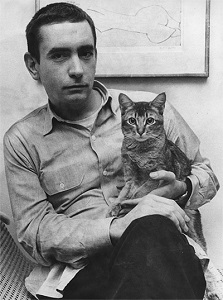
<Edward Albee (Washington DC, 12 maart 1928)
In 1963
De Nederlandse dichter De Schoolmeester (Gerrit van de Linde) werd geboren op 12 maart 1808 in Rotterdam. Zie ook alle tags voor De Schoolmeester op dit blog.
De Springhengst in de klaverwei
De Springhengst in de klaverwei
Is in zijn amourettes vrij,
De kater ’s nachts op ’t hellend dak
Een gaê zich kiest op zijn gemak
De wakkre haan steekt nooit zijn neus
Dan in het kipjen van zijn keus,
Terwijl de weegluis aan den wand
Slechts haar zijn woord en hart verpandt
Wier beeld, als hij den sterfling beet,
Zijn borst van wellust hijgen deed
En ik, die hooger toch moet staan
Dan weegluis, kater, hengst of haan;
Ik zou, voor pudding, port en spek,
Mijn vrijheid smijten in den drek?
Neen! eer zal ’t uitgediend heelal
Mijn school doen schudden in zijn val,
Eer steek ik met mijn moederspraak,
Als ’t Siegenbeeksche graauw, den draak;
Eer roept het Leidsche vloekgespuis
Mij, arme banneling, weër t’huis
Eer leg ik in het kuische graf
Mijn maagdom met mijn leven af,
Eer ik den zoeten huwlijksplicht
Op vleesch, dat ik niet lust verricht.
Naar bed
En nu vaarwel, ik ga naar bed
Ofschoon ik niets helaas verlet
Met langer op te blijven
Ach! Wanneer zal het uurtjen slaan
Dat ik van naar bed toe gaan
U meer zal kunnen schrijven?
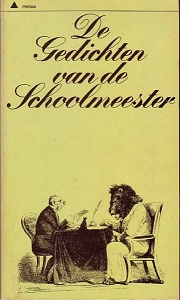
De Schoolmeester (12 maart 1808 – 27 januari 1858)
Cover
Zie voor nog meer schrijvers van de 12e maart ook mijn blog van 12 maart 2018 en ook mijn blog van 12 maart 2017 deel 2

